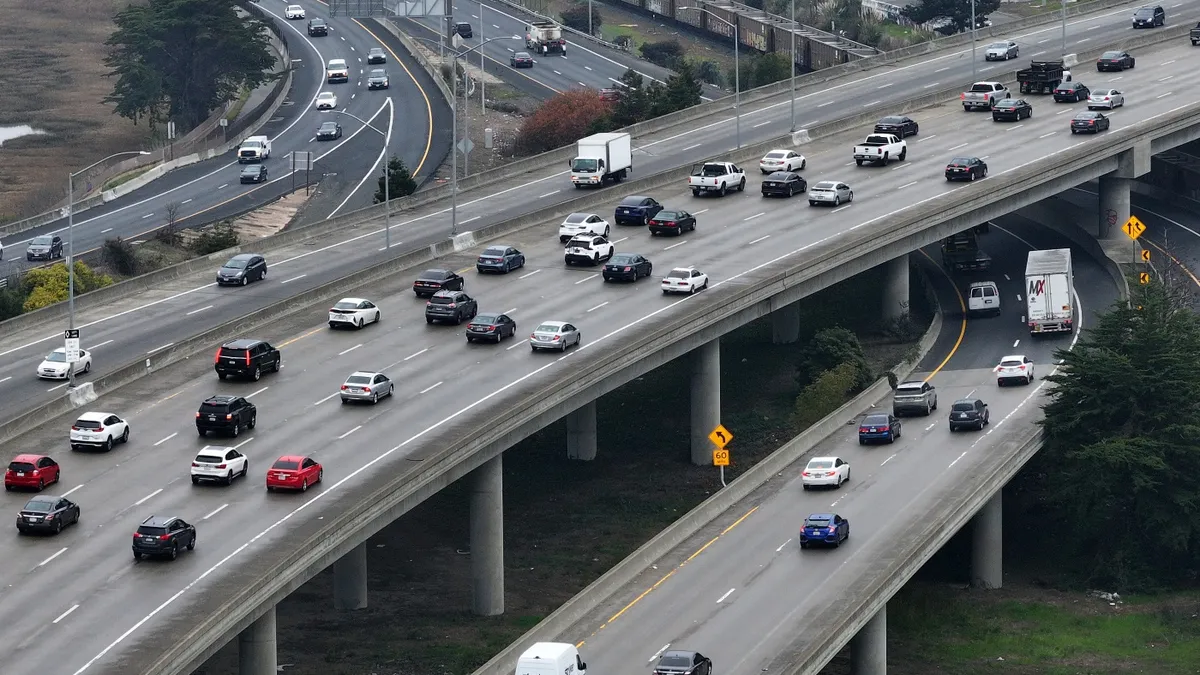
In a significant shift in policy, the Environmental Protection Agency (EPA) has announced plans to not only weaken existing regulations aimed at reducing vehicle contributions to climate change but to potentially eliminate them altogether. This decision marks a stark departure from previous efforts to mitigate greenhouse gas emissions from the transportation sector, which is the largest source of direct emissions in the United States.
In 2009, the EPA recognized that carbon dioxide and other greenhouse gases pose a threat to public health and the environment, leading to the establishment of the endangerment finding under the Clean Air Act. This finding has been the foundation for various regulations, including stringent tailpipe standards designed to ensure that at least half of the new cars sold in the U.S. would be electric or plug-in hybrids by 2030.
However, former President Trump campaigned against electric vehicle mandates and, once in office, sought to roll back these crucial regulations. The Trump administration successfully weakened two of the three major regulations aimed at reducing vehicle emissions, and now the EPA has proposed to revoke the endangerment finding, effectively dismantling the final set of rules.
EPA Administrator Lee Zeldin unveiled this controversial proposal at an auto dealership in Indiana, emphasizing that the agency heard the concerns about greenhouse gas emissions standards being a threat to American livelihoods. The changes proposed by the EPA will not take effect immediately; they must first undergo a public comment period. Following this, legal challenges are expected to arise from environmental groups and states concerned about the rollback of these critical protections.
This proposal represents a significant win for the oil and biofuel industries, which have long opposed stringent emissions regulations. It also fulfills a campaign promise for President Trump, who has criticized these regulations as elevating costs and limiting consumer choices.
The response from environmental organizations has been overwhelmingly negative. Fred Krupp, president of the Environmental Defense Fund, stated that without enforced limits on pollution, communities would face increased health risks and rising living costs. The advocacy group Moms Clean Air Force condemned the rollback as a reckless and immoral decision that jeopardizes public health.
Currently, vehicles in the U.S. are governed by three overlapping sets of efficiency and pollution standards. The EPA oversees vehicle emissions through tailpipe standards, while the Department of Transportation manages fuel economy through the Corporate Average Fuel Economy (CAFE) standards. These standards are designed to ensure that the average fuel efficiency of new vehicles meets progressively stricter benchmarks each year.
California has historically set tougher regulations than federal standards, including specific mandates for zero-emission vehicles. Other states can adopt California's regulations, thereby significantly influencing the auto market. Over the decades, these regulations have successfully pushed automakers towards producing more fuel-efficient and less polluting vehicles.
The Trump administration has made considerable strides in reversing these regulations. This includes attempts to revoke California's waiver allowing for stricter emissions standards, which Congress accepted in May. Although the federal CAFE standards remain intact for now, the Department of Transportation is reviewing them, citing compliance costs as a barrier for automakers.
In a recent statement, Transportation Secretary Sean Duffy argued that rewriting the rules would lower vehicle costs, thereby allowing consumers to purchase more desirable cars. However, consumer advocacy groups have consistently pointed out that while these regulations may raise initial car prices, they ultimately save drivers more in fuel costs over the vehicle's lifespan.
As the EPA's proposal is still in its early stages, public comments will be accepted, and environmental organizations are preparing to challenge these changes in court. California has already filed a lawsuit regarding its revoked waiver, and various states and environmental groups are seeking judicial reviews of NHTSA's changes to the CAFE standards.
Vickie Patton, chief counsel for the Environmental Defense Fund, highlighted the potential consequences of this rollback, asserting that it could represent one of the most damaging actions taken by the EPA in its history. The rollback could exacerbate issues related to climate change, such as heat waves and poor air quality.
The rollback of vehicle standards has long been a priority for the oil and biofuels sectors, which argue that stringent regulations impede industry growth. The auto industry’s stance has been complex; while some automakers have supported the EPA's authority to set strict standards, they have also expressed a desire for uniform regulations over the existing three sets.
As demand for electric vehicles (EVs) has not met expectations, the uncertainty surrounding regulatory changes complicates planning for automakers. John Bozzella, president of the Alliance for Automotive Innovation, acknowledged the need to review the proposal and expressed skepticism about the feasibility of the emissions regulations established under the previous administration.
For consumers, the rollback could lead to increased emissions and long-term fuel costs. While many drivers prefer more efficient vehicles, research indicates that consumers often prioritize up-front prices over potential fuel savings, suggesting that market forces alone may not drive the shift towards cleaner cars.
Despite these uncertainties, it is important to note that automakers have made significant investments in cleaner technologies. While some of these investments may be reconsidered, others may still be advanced, particularly in hybrid technology, which remains popular in the current market.